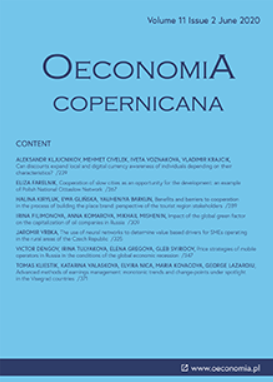The rationale of Brexit and the theories of European integration
The rationale of Brexit and the theories of European integration
Author(s): Sławomir Czech, Monika Krakowiak-DrzewieckaSubject(s): Government/Political systems, International relations/trade, Political behavior, EU-Approach / EU-Accession / EU-Development
Published by: Instytut Badań Gospodarczych
Keywords: European integration; Brexit; disintegration debate; future of the EU;
Summary/Abstract: Research background: Recent developments have raised doubts on future sustainability of the EU as successful political and economic organization. Many phenomena — from euro and sovereign debt crisis to the emergence of right-wing, populist and anti-liberal movements — have brought into question the actual foundations of European integration, be it economic cooperation or a community of values. This problem became even more topical after the Brexit referendum. For this very reason a new strand of research on European disintegration has lately began to appear. It was supposed to fill in a serious gap in the body of literature, which had so far optimistically focused on integration processes. Purpose of the article: The aim of our work is to reflect on Brexit — which is an exemplification of disintegration tendencies — through the lenses of theories of European integration in order to find out how well the two match each other. We also try to identify the dynamics Brexit may provoke in theoretical research and in the future of European integration. Methods: We take three most influential theories of integration, i.e. neofunctionalism, intergovernmentalism and post-functionalism, and attempt to analyze Brexit by means of their main assumptions and internal logic. Findings & Value added: We believe that only post-functionalism is able to satisfactorily explain Brexit by turning to mass politics and questions of identity instead of economic rationality. We also suggest that analysis of such issues will become more important in future research on European integration.
Journal: Oeconomia Copernicana
- Issue Year: 10/2019
- Issue No: 4
- Page Range: 589-602
- Page Count: 14
- Language: English

